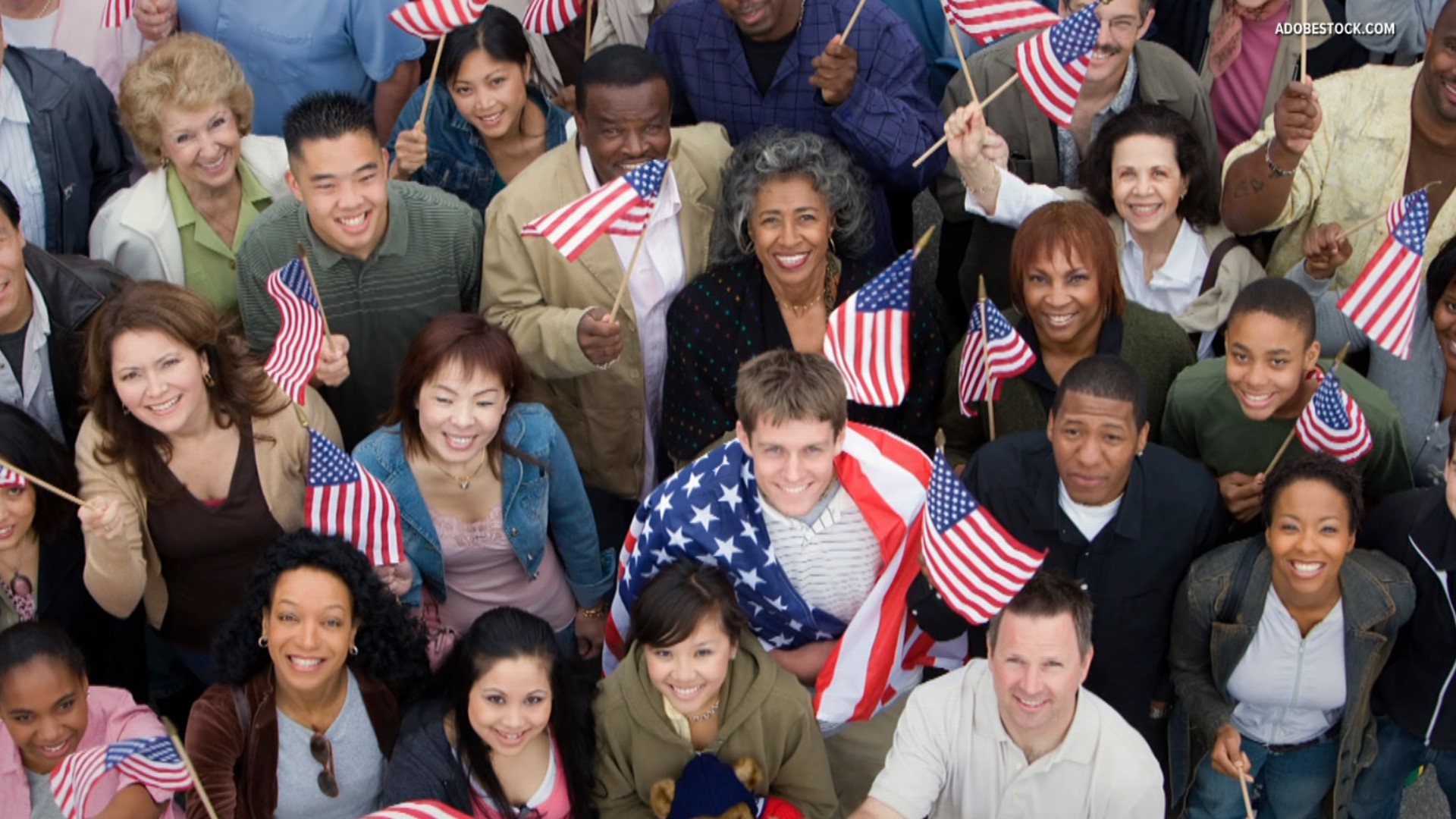Abortion rights, gun control debates exacerbate American polarization: How YOU can help bridge the divide
Abortion rights and gun control are hot-button issues in the U.S. right now, so how can people who disagree learn to see eye to eye?

Brace yourselves: scholars say the simultaneous debates surrounding abortion rights and gun control may have propelled Americans into the most polarizing chapter yet in modern history.
And that’s despite particularly divisive 2016 and 2020 election cycles (culminating in the Jan. 6 Capitol riots), when most people speculated the divisions had reached their peak.
“Historians say that we are at levels of polarization now in this country that we have not seen since the 1850s, prior to the Civil War,” says Dr. Bill Doherty, a professor in the department of Family Social Science at the University of Minnesota and co-founder of Braver Angels, an organization that offers training to help bridge the country’s political and cultural divide.
In an interview with KARE 11’s Karla Hult, Doherty noted several factors that scholars feel have deepened political and social divisions, from social media, to “media silos,” to the growing inequality within globalization, to gerrymandering that contributes to more “extreme” political candidates. And Doherty elaborated on why he feels the country’s current conversations – heightened in sensitivity by the U.S. Supreme Court’s imminent decision on Roe v. Wade and the Uvalde school shooting – have only exacerbated the crisis.
“What's happened is we have some powerfully hot-button issues that are increasingly dividing us as we get people who are more desperate for change and others who are desperate to resist that change,” he says.
Why these issues further divide us: “It deals with life.”
Regardless of a person’s stance on abortion rights, scholars uniformly portray it as one of the most, if not the most, divisive social and political debate in the United States.
“We’re dealing with life, right? We’re dealing with the humanity here, with religion, with deep values about the preservation of life and the autonomy and health of women. So it’s become a lightning-rod issue – in the United States, more than in most of the world – because, I think, it deals with life, it deals with autonomy. It deals with religion,” Doherty says.
And Doherty believes closely-held principles also explain why the gun control debate continues to dominate national discussions.
“Guns have become something that, for many people in this country, are a right that is like the right to free speech, the right to religion. And many fear about what will happen if that right is infringed upon. And then you have – on the other side – people who are fearful, understandably, about the toll that guns are taking. The suicides and homicides, let alone mass shootings. So we have fear and concern on both sides,” he suggests.
Doherty further noted people should not assume that polls – many of which suggest 90% of the American public support some measure of gun control – reflect the true reality of where people stand.
“How people answer polls is different than how they regard a particular piece of legislation,” he says, adding: “There have been states that have had referendums on gun control that did not pass, even though the polls indicated that the majority of people would be for it.”
And Doherty notes that although the country is focused this month on abortion rights and gun control, the last several years of discussions - related to racial reckoning, the pandemic and, more recently, the war in Ukraine - have also driven a wedge between people who may not agree on the proper course of action. Single-issue voters also play an outsized role in driving the debate and division, he notes.
So what now? Advice for how YOU can help bridge the divide
The good news? Doherty and other communication experts believe each of us – individually, within our own conversations – can play a part in bridging the country’s political and social divide, even when broaching these sensitive subjects.
In 2016, Doherty co-founded Braver Angels when he and others realized American leaders and the general public needed thoughtful instruction and reminders on how to communicate in a productive and respectful manner. Today, Braver Angels staff lead workshops for so-called “Reds” and “Blues” in every state and at every level from individual families to the U.S. Congress.
“There is more of a demand, if you will, because a lot of people are getting exhausted about the polarization and frightened for the country,” he says.
The Braver Angels advice is both instinctive and based on decades of research. And Doherty always begins by recommending respect between those who disagree.
“One thing we can do is to try not to convince loved ones to change their minds about political issues that they feel strongly about. If you set out to change somebody’s mind, to straighten them out, to give them the facts that they’re lacking, they’re going to resist that,” he said.
Doherty also advises to steer clear of labels: “Don’t say, ‘That’s socialist.’ Or, ‘That’s racist.’ Or, ‘That’s a big-government thing.’ Or ‘That just tries to improve the lives of the rich.’ Don’t do all the slogans.”
Instead, Doherty suggests people lead with “I-statements.”
“We talk about ‘I-statements,’ not ‘truth statements,’” Doherty explains, adding: “’This is how I see it. This is why I see it, and where I come from. How about you?’ As opposed to, ‘Here’s how it is, dummy.’”
Finally, Doherty says regardless of how wide the gulf may seem today between people of different political camps, he encourages everyone to evaluate how our highest aspirations and values are “more similar than different.”
“Whenever you find yourself saying "How could that group possibly think that,?"" there is an answer to the question, and it’s usually not because they’re ignorant or ill-motivated,” he says, adding: “Everybody wants safety in their communities. Everybody wants their kids to go to school and learn and not worry. Everybody wants a just – or a society where people have a chance to succeed. We want our kids to be educated at that level, reach for that level… We may differ on the specifics, but look for some common values and then for some common ground.”
Another expert's perspective: A translator teaches the power of trust
Dr. Doherty and other academic scholars are not the only people preaching the pursuit of common ground.
Sixteen years ago, Ingrid Christensen founded her own “language solutions company” – INGCO International. And in the course of providing translation, interpretation, voiceover and subtitling services to corporations, cities and community organizations, Christensen learned the key to powerful, productive communication: trust.
“It’s my working theory that trust is really the key driver in many relationships,” says Christensen, who’s also writing a book detailing how trust can improve your communication and success, personally and professionally.
Like Doherty, Christensen urges everyone attempting sensitive political conversations with people of differing views to look for similarities and motivations.
“A lot of these ideas and beliefs are value-based. And they’re not something that’s specifically formed overnight. We usually take a lifetime to form our ideals and our values, and usually they’re based on some sort of emotion. And so one thing that I really like to use communication for, regardless of what language you’re speaking, is to try to find out: In what way does this value present itself in your life,” she suggests.
Why talk at all?
With a summer calendar filled with graduation parties, barbecues and weddings – all of which will bring together people of all political stripes – some may be tempted to ask: Why broach an uncomfortable conversation at all, especially if you know the other person may not share your position?
Both Christensen and Doherty say America’s health, and perhaps even survival, depend on it.
“I quite honestly think that our world is at stake. I think that our health is at stake,” Christensen says, adding: “I think time is of the essence. And if we continue to be further and further apart, there’s never, ever going to be a middle way. We can’t function on two different sides of the spectrum. At some point we’re going to have to find our way back to middle.”
Doherty agrees, noting that although we’re unlikely to see another armed Civil War, we could still see further separation: “The metaphor I use is we’re heading toward a 'Civic Divorce' of people who are writing each other off and institutions that fall apart because we can’t get along with each other.”
While Doherty doesn’t have “any prescription” dictating that everyone must introduce touchy topics at their next family gathering, he does see value – and especially, hope – in taking the time to talk… and listen.
“My hope for us, as individuals, is that instead of just adding fuel to the flames – the fires of polarization – that we can individually step back and say "How do I seek to understand my fellow Americans who disagree with me, as opposed to demonizing them?"" Doherty says, adding: “We can decide if we’re going to be part of the war, the polarization of wars, with our own tribe. Or whether we want to try to understand and reach out – not abandoning any of our core values – but not just participating in this internal warfare that is destroying our country. We make individual decisions every day about that, and I firmly believe we can individually be agents of peace.”
You can find more information about the Braver Angels organization here, and more about INGCO and Ingrid Christensen's upcoming book here.
Watch the latest local news from the Twin Cities in our YouTube playlist:


